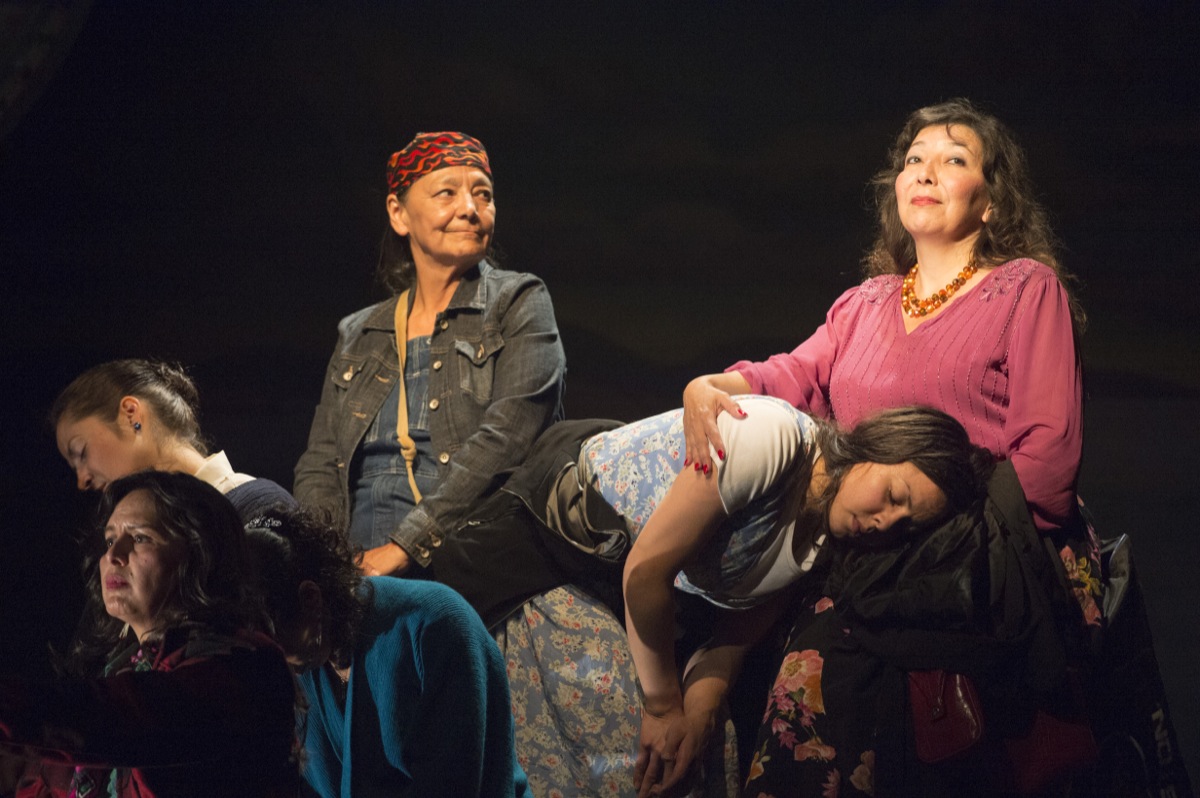As patrons scurried among the aisles and claimed their seats, the muted cry of a loon echoed through the theatre, calling attention to Catherine Hahn’s set design, which transformed the Belfry’s main stage into the shingled slope of Pelajia Patchnose’s (Tantoo Cardinal) roof. Every time I go to the theatre, I am struck by the metamorphic power of the set design. The Rez Sisters was no exception. The set was nothing short of superb and it immediately put me into theatre mode after a long (and, let’s be honest, boring) Thursday.
The minimalist use of props, which were employed to indicate shifts in setting, kept the rooftop visible for the much of the play. Though necessary to keep the play moving at a steady pace, the omnipresence of the rooftop actually worked to the production’s advantage. In many ways, The Rez Sisters is about dreaming; each of the seven women has experienced hardships as a result of her life on the reservation, but dreams of achieving a better life once she wins the Biggest Bingo in the World. All of this dreaming begins with Pelajia sitting on her rooftop, declaring that she wants to go to Toronto and, as the play progresses, the roof becomes a concrete symbol for the act of dreaming.
Though at times over-the-top, the production was well-acted and each of the actresses (and the single actor) infused their characters with a vivid sense of reality. At times funny, at times heartbreaking, the play shifted from stories of rape, suicide, and cancer, to dreams of gleaming toilets and shiny, black paved roads. Some of the dreams were trivial, but they ultimately humanized rather than hyperbolized the characters.
The performances of Tantoo Cardinal, Tiffany Ayalik, who plays a mentally disturbed Shaboonigan, and Waawaate Fobister, who plays Nanabush, the bird god of death, stood out among the dynamic acting company.
Regardless of the dramatics, which were at times hard to swallow, The Rez Sisters proved to be an interesting portrayal of Indigenous women in Canada. I sincerely appreciated getting a glimpse into these characters’ lives and struggles. If you are interested in feminism, Indigenous marginalization, or uniquely artistic theatre, The Rez Sisters is the play for you.








